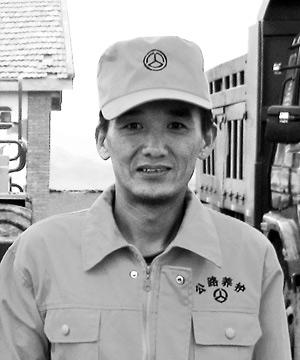Building a road to revival
Updated: 2011-09-01 10:39
By Erik Nilsson (China Daily)
|
|||||||||||
YUSHU, Qinghai - The roads being reconstructed by workers like Hu Yongtao in the Yushu quake zone are, in turn, the roads to reconstruction in the disaster area. More importantly, they are also the pathways to better development than existed in Qinghai province before the temblor.
By working 6 am to 10:30 pm a day for nine months a year, braving -25 C winters and enduring altitude sickness on the remote Tibetan Plateau, Hu and his colleagues are creating an improved transportation system.
|
 Hu Yongtao in the Yushu quake zone, Qinghai |
To reach Qumulai, residents in the nearest county used to require a three-hour bone-pounding ride over pitted earthen tracks.
It now takes half an hour.
"The road was terrible," said Hu. "Ordinary cars couldn't pass. Drivers are much happier now."
Settlements as remote as Yege county, about 1,000 km from downtown Yushu prefecture - itself an underdeveloped and quake-ravaged area - rely on outside supplies.
Fruits and vegetables cannot be grown for hundreds of square kilometers around Yege because the soil is thin in nutrients and it is chilly most of the year. All the earth can push up is ankle-high grass, which feeds the yaks, the dairy of which feeds the tent-dwelling ethnically Tibetan herders. For many, yak dairy is their only food.
"Everything else must come from far away," said Yongdingquepab, deputy headmaster of Yege Primary School.
What this means for the Yushu Public Road Team workers is "We can never rest. As soon as we fix one road, another one has a new problem. It never ends. We don't know if we could ever finish our work in Qinghai," Hu said.
The 39-year-old's greatest wish is for better equipment.
"We work with the simplest tools, like shovels and our hands."
Hu earns 3,000 yuan ($470) a month, which he said is more than most of his colleagues, because the Henan native has worked on roads in Qinghai's Tibetan areas for 19 of his 20 years on the job.
"I can only say some simple sentences in Tibetan," Hu said.
"Despite the language barrier, I still have good communication with the local people. We often eat and drink together. We mostly talk about the road."
The residents of Yege, where the team's camp is, invite them to local festivals.
"The school gave us some tables when we didn't have any," Hu said.
In the school's office, three teachers share every desk because of the shortage.
Hu has also adapted to the plateau's oxygen-starved and often frigid air.
"I had to work with a splitting headache at first," he said. "And my lips were always chapped."
He dealt with the altitude sickness that often debilitates outsiders by chewing garlic and gulping oxygen from a tank in the corner of the worker's common area, he said.
"The extreme cold is a danger, so we have to wear so many thick clothes and change boots often," Hu said.
Hu is looking forward to his three-month annual leave on Nov 3.
"In the winter, it's too cold and snowy to do regular construction work," he said.
"But we remain on call. If there are problems with snow or ice and we get the call from the company, we have to rush to the site to clear it."
Because of that, the workers sometimes take turns staying in Yege during the winter, he said.
"I plan to retire at 55 and be happy for what I've done with, and for, others," Hu said.
"We're proud to do this job. It's hard work, but we do what we can for the good of the people and the country."
Hot Topics
Li Na FIFA Novak Djokovic Liu Xiang Tiger Woods Yao Ming Rafa Nadal Ding Junhui Dirk Nowitzki Lin Dan Lionel Messi Sang Lan Maria Sharapova Wimbledon Barcelona







